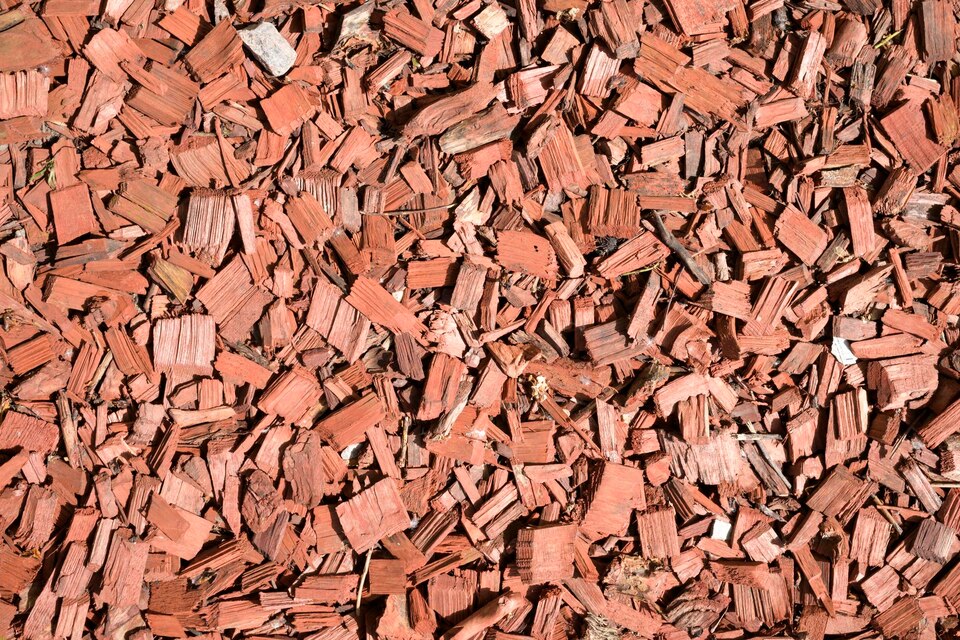Bark mulch is a versatile and effective solution for enhancing gardens in Everett, WA. This organic material offers numerous benefits, making it a popular choice among homeowners and landscape professionals alike. Using bark mulch in your garden can improve soil health, retain moisture, and suppress weeds, contributing to a healthier and more visually appealing landscape.
Benefits of Using Bark Mulch in Everett Gardens
Moisture Retention and Soil Health
Bark mulch plays a significant role in retaining soil moisture, which is essential for the health and growth of plants. In the climate of Everett, maintaining optimal soil moisture levels can be challenging. When you apply bark mulch, it acts as a protective layer over the soil, reducing water evaporation and promoting consistent soil moisture. This enables plant roots to absorb water more effectively, facilitating healthier growth.
Additionally, as bark mulch decomposes, it enriches the soil with organic matter. This process enhances soil structure and fertility, providing a nutrient-rich environment for your plants. Improved soil health translates to more robust plant growth, better resistance to diseases, and a more flourishing garden overall.
Weed Suppression and Erosion Control
One of the most practical benefits of using bark mulch is its ability to suppress weeds. A thick layer of bark mulch creates a barrier that restricts sunlight from reaching weed seeds, thereby hindering their growth. This reduces the need for frequent weeding, saving you time and effort in maintaining a tidy garden.
Moreover, bark mulch helps prevent soil erosion. In areas with heavy rainfall or strong winds, soil erosion can be a significant issue. Mulching stabilizes the soil by protecting it from rain impact and wind exposure. This is particularly important for slopes and areas prone to erosion in your Everett garden.
Visual Appeal and Garden Aesthetics
Bark mulch also contributes to the visual appeal of your garden. It adds a polished, well-maintained look to plant beds, pathways, and other garden areas. Available in various colors and textures, bark mulch can complement your garden design and enhance its overall aesthetics. Whether you choose cedar, hemlock, or pine, the natural appearance of bark mulch blends seamlessly with the landscape, creating a cohesive and attractive outdoor environment.
Ideal Areas for Bark Mulch Application in Everett
Flower Beds and Vegetable Gardens
Flower beds and vegetable gardens are prime areas for bark mulch application. By applying a thick layer of mulch around your plants, you can protect delicate roots, maintain soil moisture, and suppress weed growth. Mulch creates a more stable environment for flowers and vegetables, ensuring they receive the nutrients and water they need to thrive. This not only boosts plant health but also enhances the productivity and beauty of your garden.
Around Trees and Shrubs
Bark mulch is also ideal for placing around trees and shrubs. It protects the root zone, retains moisture, and keeps the soil temperature consistent. By mulching around the base of trees and shrubs, you help them establish a strong root system. This is particularly beneficial for young or newly planted trees and shrubs, as it promotes healthy growth and reduces transplant shock. Be sure to leave a small gap around the trunk to prevent moisture buildup and rot.
Pathways and Walking Trails
Using bark mulch on pathways and walking trails adds both functionality and aesthetics to your garden. It provides a natural, slip-resistant surface that is comfortable to walk on and easy to maintain. Mulched pathways also blend seamlessly with the garden, enhancing its natural beauty. The organic material helps prevent soil erosion on slopes or uneven terrain, making it an excellent choice for creating safe and visually appealing garden paths.
Incorporating bark mulch in these key areas of your Everett garden not only brings practical benefits but also enhances the overall look and feel of your outdoor space. From protecting plants to creating attractive walking trails, the effective use of bark mulch can transform your garden into a thriving, beautiful oasis.
Selecting the Right Type of Bark Mulch for Your Needs
Overview of Popular Bark Mulch Types
Choosing the right type of bark mulch is essential for maximizing its benefits in your garden. Here are some popular types of bark mulch available:
1. Cedar Bark Mulch:
Cedar mulch is known for its pleasant aroma and natural insect-repelling properties.
It decomposes slowly, providing long-lasting ground cover.
2. Hemlock Bark Mulch:
Hemlock mulch has a rich, dark color that enhances garden aesthetics.
It is gentle on plants and does not alter soil pH levels.
3. Pine Bark Mulch:
Pine mulch is lightweight and easy to spread.
It provides essential nutrients as it decomposes, improving soil health.
Pros and Cons of Each Type
Understanding the pros and cons of each mulch type will help you make an informed decision:
1. Cedar Bark Mulch:
Pros: Long-lasting, repels insects, pleasant scent.
Cons: Can be more expensive than other types.
2. Hemlock Bark Mulch:
Pros: Attractive color, gentle on plants, does not affect soil pH.
Cons: Can be more costly and may decompose faster than cedar.
3. Pine Bark Mulch:
Pros: Affordable, easy to spread, improves soil health.
Cons: Can attract certain pests and decomposes quicker than cedar.
Best Practices for Applying and Maintaining Bark Mulch
Step-by-Step Guide to Effective Mulch Application
1. Prepare the Area:
Remove weeds and debris from the area where you plan to apply mulch.
Loosen the soil to allow for proper mulch integration.
2. Apply Mulch:
Spread a 2-4 inch layer of bark mulch evenly over the soil.
Keep mulch away from the base of plants to prevent rot.
3. Water the Mulch:
Lightly water the mulch to help it settle and integrate with the soil.
Maintenance Tips for Long-Lasting Mulch Benefits
1. Regularly Check Mulch Depth:
Maintain a consistent mulch layer by adding more as needed.
2. Remove Weeds:
Keep an eye out for weeds and remove them promptly.
3. Turn the Mulch:
Periodically turn the mulch to aerate it and prevent compaction.
Common Mistakes to Avoid
1. Over-Mulching:
Applying too much mulch can suffocate plant roots and impair growth.
2. Mulching Too Close to Plant Stems:
Keep mulch a few inches away from plant stems to prevent rot and disease.
3. Using Fresh Mulch Inappropriately:
Avoid using fresh mulch immediately, as it can draw nitrogen from the soil.
Conclusion
Bark mulch is an invaluable resource for maintaining and enhancing gardens in Everett, WA. Its benefits, from moisture retention to weed suppression and visual appeal, make it an essential element for any gardener. By selecting the right type of bark mulch and applying it correctly, you can create a thriving, low-maintenance garden that remains beautiful year-round.
At Northwest Landscape Supply, our professionals are here to assist you with selecting and providing the highest quality bark mulch in Kenmore. Let us help you create a lush, healthy, and visually stunning outdoor space. Contact us today to explore our range of bark mulch options and take the first step towards a better garden!





